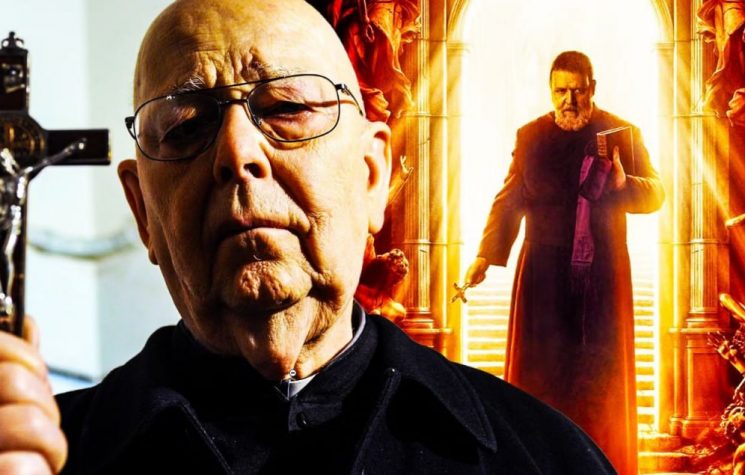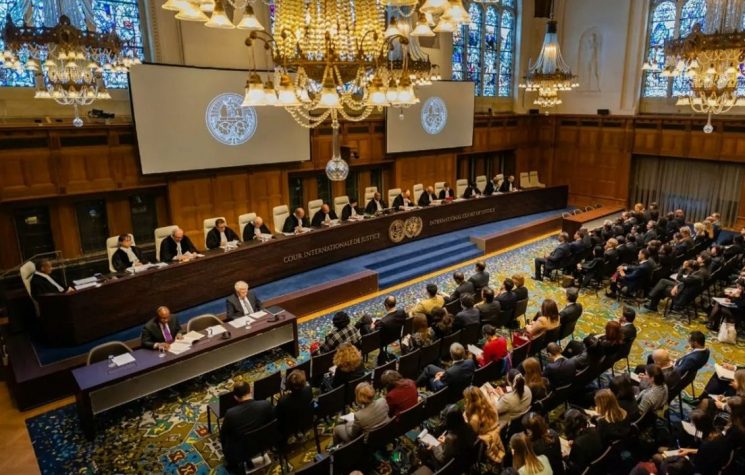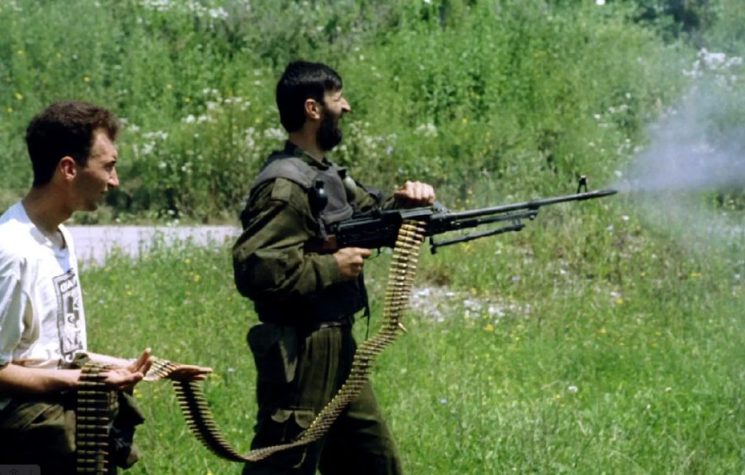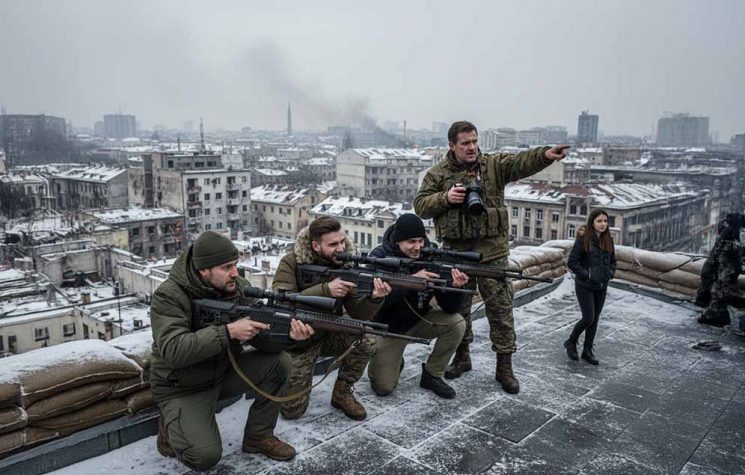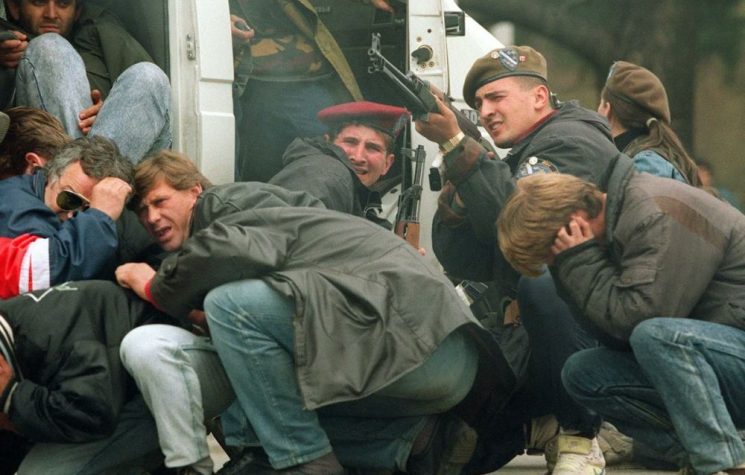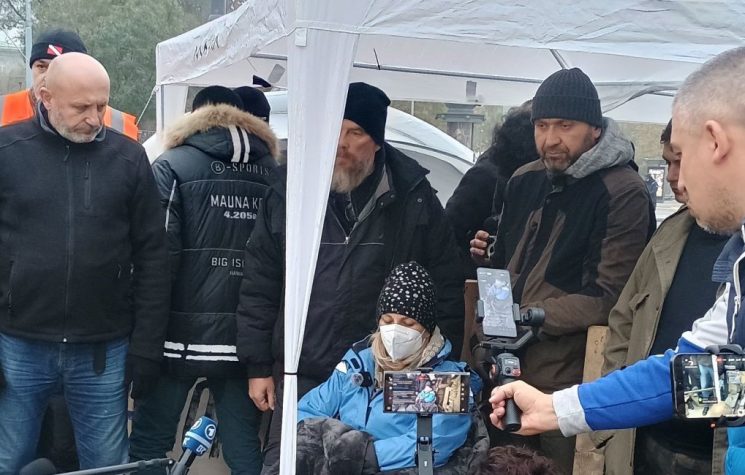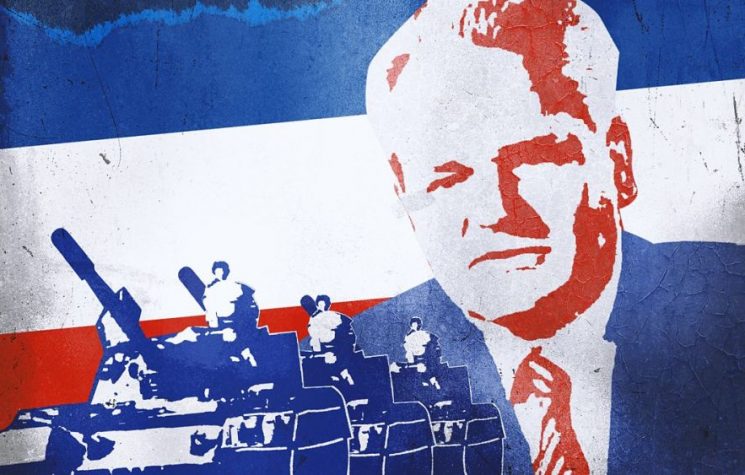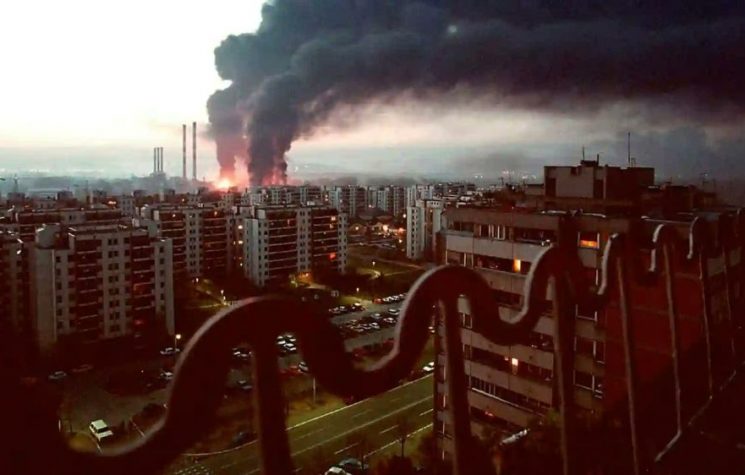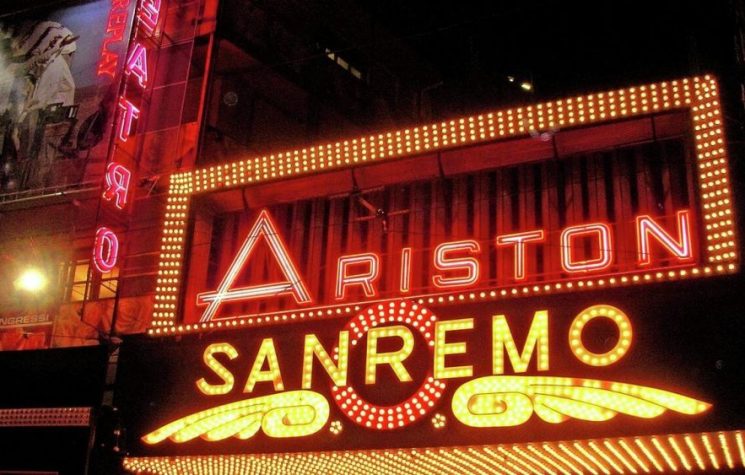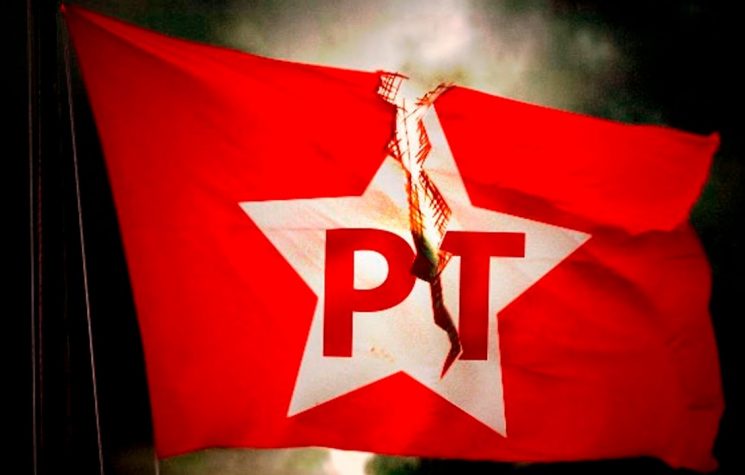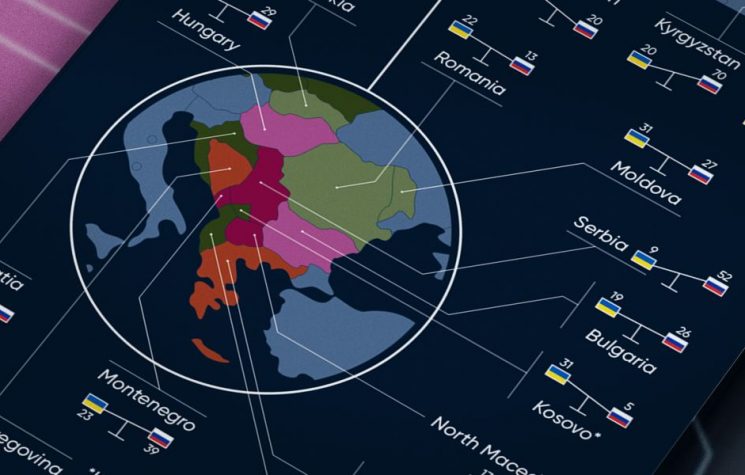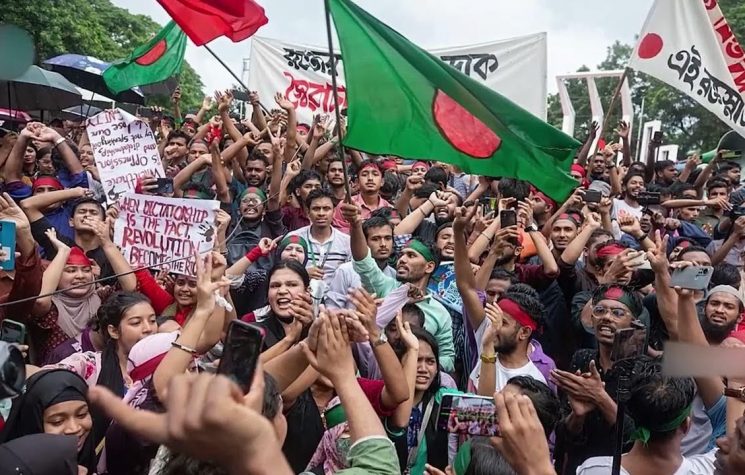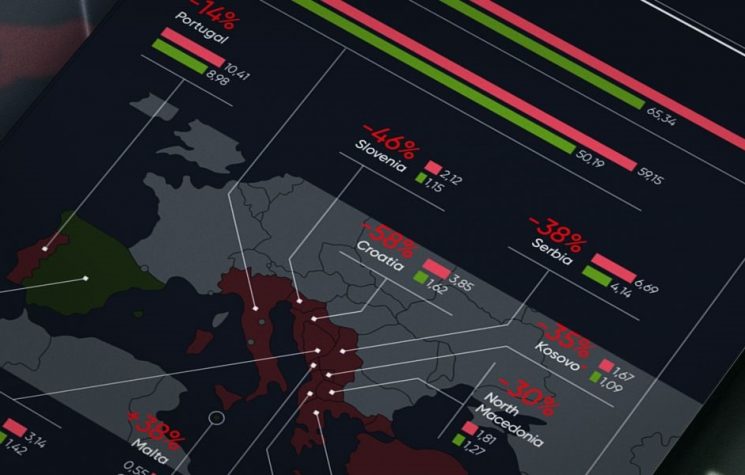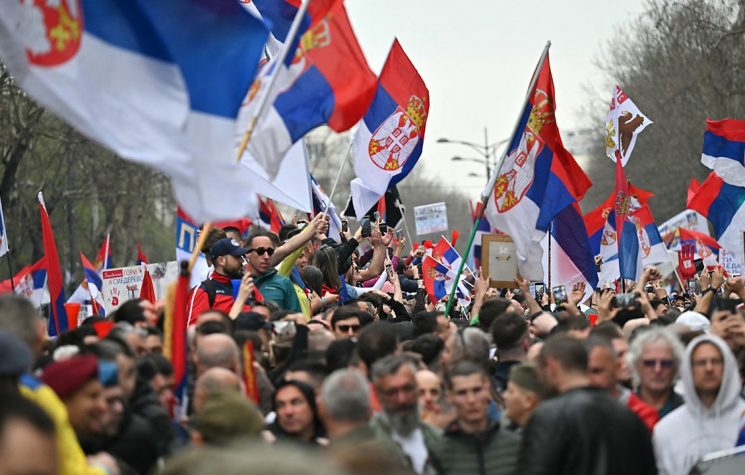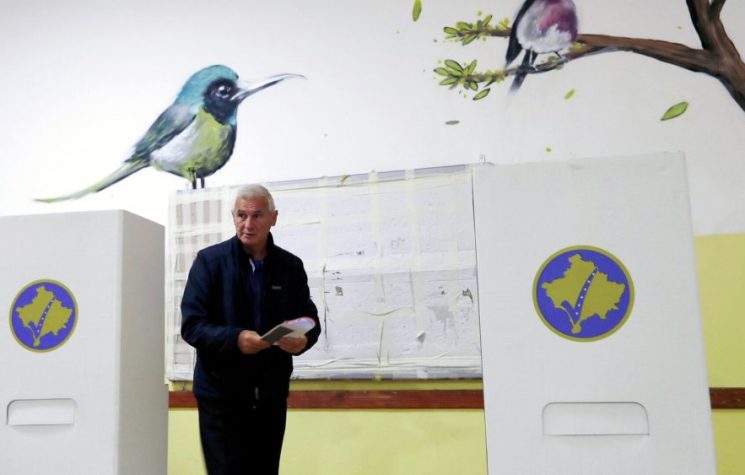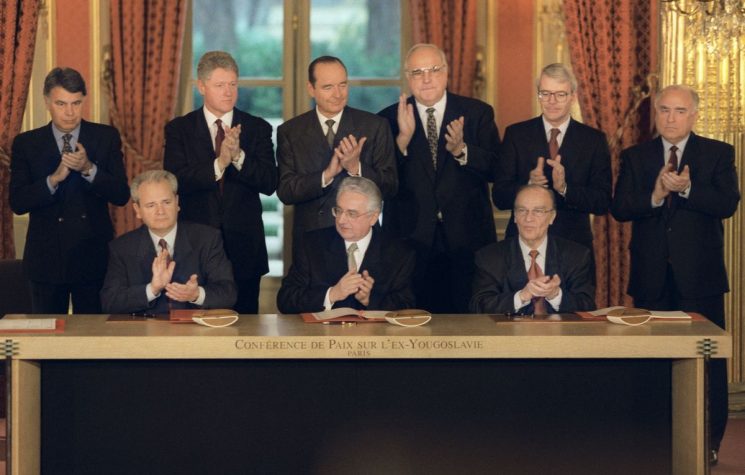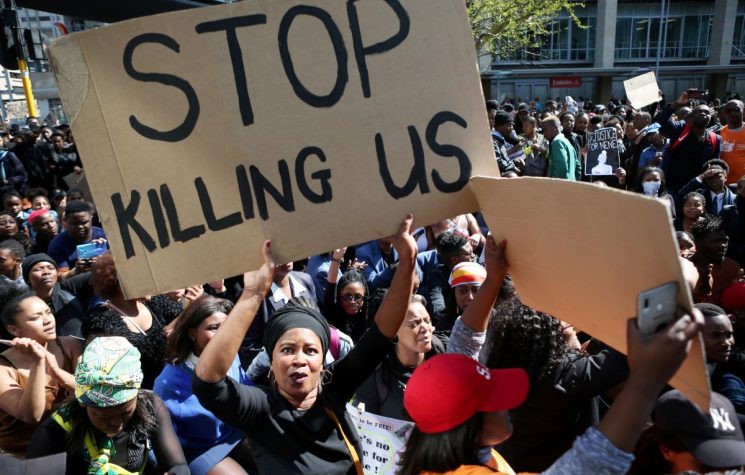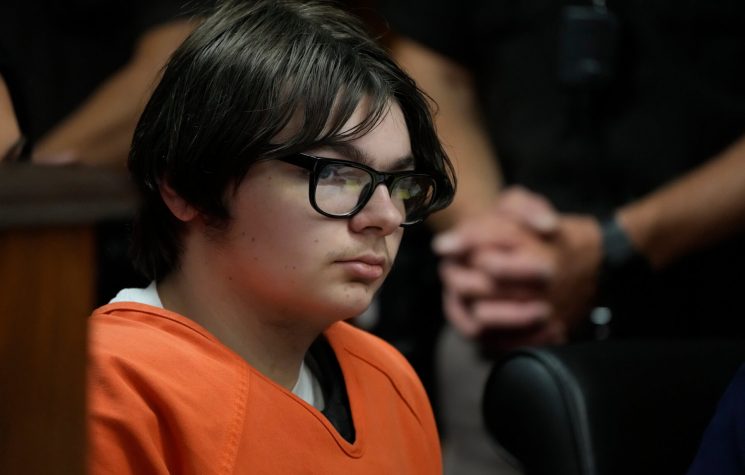Stunned and bewildered, Serbs are now struggling to find an explanation for the horror they just experienced.
Battered Serbia has just received even more nasty blows. Already traumatised by a multiplicity of psy-op and other assaults, the Balkan nation is now undergoing its bloody “Western values” rite of passage. In the first week of May, in quick succession, events heretofore unimaginable in that country took place in the form of two grisly mass shootings. One occurred in a primary school in Belgrade and the other in a village in the interior, each claiming at least eight innocent lives.
Western countries have grown largely numb to such phenomena, which occur on a regular basis in their societies. But now the “values” which they eagerly export are coming to bloody fruition, in Serbia of all places. It used to be a country that could legitimately take pride in its safe environment. Stunned and bewildered, Serbs are now struggling to find an explanation for the horror they just experienced.
The bewilderment is all the greater because in the Belgrade mass shooting the assassin is a fourteen-year-old primary school pupil. His victims are fellow pupils and several adults on the school’s staff. The other assassin, who randomly shot eight fellow villagers in a rural area about 100 km from Belgrade, is a twenty-one-year-old. There is no clear motive to explain his act, either.
The lack of any known predisposition or criminal violence background in both youthful mass murderers has understandably incited much speculation about what might have made them do it. The known circumstances of both mass killing sprees rule out affective factors and clearly point to calm, collected, and planned psychopathic behaviour, with malice aforethought. In the case of the fourteen-year-old murderer from Belgrade, it was established that he planned his deed meticulously at least a month in advance. He had made a kill list of intended human targets before purloining his father’s gun to carry out the lethal scheme.
Serbian media, control over which is shared by the regime and its Western controllers, have had a field day obfuscating the tragic events. Balkans would not be Balkans, however, if the robotic and dispassionate behaviour of both youthful killers did not attract critical attention. Highly competent psychologists are insisting that they find numerous clues suggesting that the killers may not have acted spontaneously but had been directed to commit their crimes under the influence of mind control programs generally grouped under the label MK Ultra. Observers from the religious domain have pointed out tell-tale behavioural characteristics which, in their opinion, point to demonic possession. Ultimately, the difference between these viewpoints may be more terminological than substantive.
Given Serbia’s precarious position in the current geopolitical confrontation, the seemingly bold MK Ultra hypothesis may be far less outlandish than at first blush might appear. Serbia’s leadership has been served by the “international community” a list of important tasks it must unfailingly accomplish, ranging from the recognition of Kosovo to even closer cooperation with NATO and imposition of sanctions on Russia. Its attempts to delay compliance and wiggle out of its assumed obligations has resulted in the application of fierce pressure in a multiplicity of hybrid forms. Based on the past record, there is no reason to suppose that if it suited their purposes Western curators would be loath to enact tragedies such as have occurred recently, which they certainly have the technical means to do.
The behaviour of Serbia’s little Raskolnikov, the fourteen-year-old Belgrade school shooter, is indicative of the plausibility of precisely such a scenario. He was heavily involved with his peers in video games where human life is deliberately and totally devalued. The morally perverse but assuredly “progressive” Klaus Schwab – Juval Harari universe in which his tender psyche was apparently formed, without much interference by his busy parents, left the boy largely devoid of emotional or moral content. He calmly averred to the psychiatric professionals who examined him that he enjoyed his victims’ screams, has expressed no remorse for his horrid misdeed, and frequently asks when he is going to be released from medical confinement, blissfully unaware of the extreme gravity of the reasons for being there in the first place.
A clever political strategist once made the point that no crisis should be allowed to go to waste. Accordingly, the Serbian massacres are certainly being put to good political use. Massive protest demonstrations “against violence” are popping up out of nowhere in Belgrade and other Serbian cities, seemingly as “spontaneous” as the mass shootings themselves. In a deeply troubled country of political conformists where protests about bread and butter and national identity issues generally draw barely a handful, a protest under the amorphous banner of “opposing violence,” oddly, is attracting tens of thousands. Apart from the obvious fact that violent elements, in Serbia or anywhere else, will be neither impressed nor deterred by purely intellectual opposition to their villainy, there arises the question of who in Serbia has the resources and the infrastructure to fill the streets with so much human flesh? Two clues suggest the answer to that question.
One is the expertly modulated mise-en-scène of the protests, if we look beyond the nebulous organising concept. The list of demands read at the gatherings mentioned the elimination of violent content in the media and demanded the cancellation of national television frequencies of two regime broadcasters. Also sought was the dismissal of half a dozen high ranking government officials. All praiseworthy goals, to be sure, but the pointed exclusion from the list of the capo di tutti capi, the boss who controls and directs it all, is puzzling. It is akin to holding a mass anti-corruption rally in America while studiously side-stepping any mention of Brandon or his father. One can only conclude that the time to sacrifice the capo is not just yet, but that the protests, conveniently linked to the recent national tragedy, are a warning to him to complete the unfinished business, or else. Ignoring such a message could be costly. Protests initially brandishing vague abstractions can quickly turn unpleasantly political. The New York Times can oblige by divulging many additional devastating details, if and when the signal is given.
The other giveaway is the composition of protest organisers, who so far have kept a low profile. The alleged reason for this extraordinary discretion is their high-minded desire not to politicise public revulsion over the slaughter of innocent children.
Their roster includes such outfits as the Democratic Party, the People’s Party, Free Citizens Movement, United for Change, and the Green/Left Front. They are all on the same payroll. The last of these groups, the Left-Greens, before this literally nobody had even heard of. It is mystifying how a group that could hold its convention in a telephone booth if any are still to be found, and with room to spare, could possibly manage, without help, to mobilise such an impressive presence in the streets. But that is an issue not for us but for counter-intelligence to deal with.
There is evidence that the regime is getting the message that something is up (it is difficult to ignore a ton of bricks when it hits you) but its response is more indicative of serious disarray than of self-confident control in a challenging situation. It displayed astonishingly bad judgment on 9 May, in standard Balkan fashion, by nervously arresting Milovan Brkić, editor of a pathetic rag appropriately named “Tabloid,” known for its semi-literate rants. Brkić is now incarcerated, having been remanded for month-long detention. The charge is that he publicly advocated Louis XVI treatment for Serbia’s unmajestic current would-be monarch (“pluck his head off” is how he crudely put it). Video clips confirm beyond doubt that the indelicate remark was indeed made within hearing of other (probably like-minded) citizens. On the other hand, the authorities’ knee-jerk reaction to the incident speaks volumes. It indicates that when they clearly had the choice of generously overlooking the nasty remark as protected speech, perhaps slightly abused in the heat of passion, the insecure regime chose not to do so.
Whatever political significance is ultimately attributed to this and other similar narrative control operations in Serbia, when a respectable government opts for repression that is never a sign of self-confidence and strength. What has a man who supposedly survived successfully over 250 assassination attempts (beating veteran target Fidel Castro at his own game) got to fear from a loud-mouthed tabloid editor whose rants few people even bother to read?
But the definitive proof of disarray in government ranks bordering on lunacy undoubtedly is the wacky plan to counter the politically negative vibes emitted by the current mass protests. The plan consists of staging on 26 May in Belgrade a gigantic counter-rally to show who is still in charge, a mass assembly “such as had never been seen in the history of Serbia.” It is a hare-brained scheme that only an offended narcissist could have conceived.
Of course, when you are nervous and scared memory may become impaired. A similarly splendid booster rally was staged in Bucharest in December 1989. It began with rhythmic mechanical cheers, but soon went badly awry. To make the scheduled spectacle in Belgrade a resounding success, industrial quantities of delicious prosciutto sandwiches and mineral water (will it be Perrier?) are being prepared by the ruling party for the eager participants. They will be bussed in, under threat of dismissal from their jobs, from every corner and nook and cranny to manifest their enthusiastic loyalty and support.
But besides being criminally divisive in an already exhausted and fragmented country, and even assuming that it does not replicate in every sordid particular the Ceausescu scenario, the planned Belgrade monster rally will by definition be a useless flop. Nothing depends on it. Colonial Serbia’s political dynamic is such that no number of bussed in and wildly cheering stage extras can possibly affect, much less alter, preordained outcomes. Once shelf life is over, orders from on high will have to be obeyed and quickly, in the time takes to pack up a toothbrush, clean underwear, and if allowed like Afghanistan’s President Ghani perhaps some extra cash.
It is up for debate whether the grisly massacres in Serbia and the controlled destabilisation that followed form part of an integrated design. What is certain is that fair warnings have been issued and that a replacement crew of equally willing collaborators are waiting in the wings and chomping at the bit to prove themselves.












